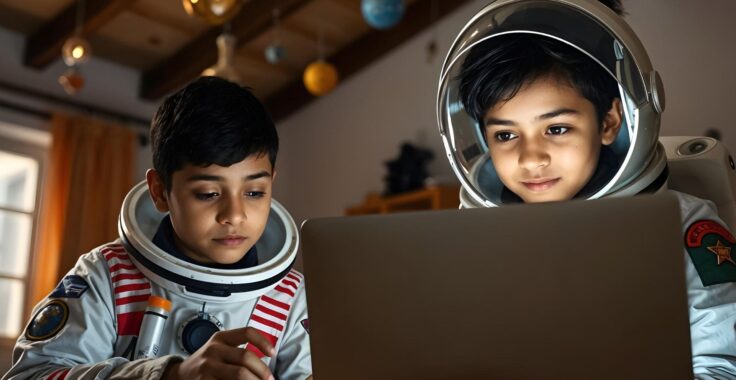
In today’s rapidly advancing world, space science has become a key driver of innovation, technological advancement, and global collaboration. From understanding our universe to solving complex problems on Earth, space science fosters curiosity, critical thinking, and a forward-looking perspective. As we step into an era defined by the exploration of Mars, the rise of private space missions, and satellite-based technologies, incorporating space science into modern education is more essential than ever.
Sparking Curiosity and Imagination
Space science naturally ignites curiosity in students. The vastness of the universe and the mysteries it holds have captivated human imagination for centuries. Introducing space science in classrooms helps students explore fundamental questions about the origins of the universe, the possibility of extraterrestrial life, and space exploration technologies. This curiosity translates into active learning, driving students to ask deeper questions and explore the unknown.
Fostering STEM Skills
Space science is inherently interdisciplinary, integrating various STEM (Science, Technology, Engineering, and Mathematics) fields. Understanding how satellites work, for example, involves knowledge of physics, math, computer science, and engineering. By introducing space science concepts, students develop a wide range of skills, including problem-solving, critical thinking, and technical competencies, all of which are crucial for success in the 21st-century workforce.
Inspiring Future Innovators
Space exploration has long been a source of inspiration for innovation. Many technological advancements, from GPS systems to medical imaging devices, have roots in space science research. When students are exposed to space-related topics, they are inspired to pursue careers in fields such as aerospace engineering, astrophysics, robotics, and even environmental science, fueling the pipeline of future innovators and researchers who will address global challenges.
Cultivating Global Awareness
Space science education nurtures a sense of global citizenship. Space missions and research require international collaboration, as evidenced by efforts like the International Space Station (ISS). This teaches students the importance of working together to solve complex challenges that affect all of humanity, such as climate change, disaster management, and space exploration.
Navars Edutech: Shaping the Future of Space Education
Navars Edutech is at the forefront of integrating space science into the Indian education system. As a premier space education startup and ISRO’s official space tutor partner, Navars Edutech provides hands-on learning experiences through Astronomy and Space Labs in schools. With its immersive curriculum, DIY kits, and model-based learning, Navars Edutech is ensuring that students not only understand space science concepts but also gain the practical skills needed to thrive in STEM fields. By doing so, Navars Edutech is empowering the next generation of space scientists, engineers, and explorers, helping India take its place among the global leaders in space exploration.
